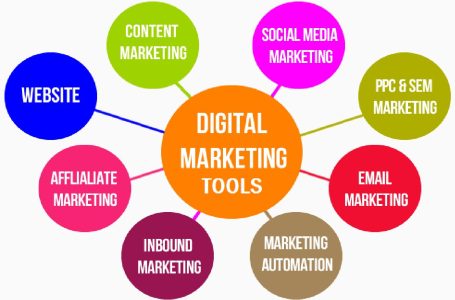Definition Business Management
Business management refers to the skills to run a business effectively, from strategic planning to implementing processes and motivating employees. It focuses on managing and organizing the company’s resources to achieve its objectives. It’s not just about planning and leading. It includes a set of skills and abilities that every good manager should possess.
What is Business Management
Business management is connected to the company’s administration, whether of a production line or any type, in the same way as the management of human resources or financial management. It relates to planning and controlling company resources, operational processes, employee motivation, and overall company growth. To better understand the concept of business management, it is important to understand that it is an ongoing process that includes many functions and activities.
These include planning, organizing, controlling, leading, and motivating employees and, most of the time, also timely and practical direction to deal with any threat. However, for a business to function well, the business management process should not be limited to planning and control alone.
The entire organization and company culture should support it and include a wide range of strategies related to processes and resources, both human and non-human. Therefore, the best business leaders achieve harmony between these three areas.
What are the fundamentals of business management?
The fundamentals are planning, organizing, controlling, leading, and motivating. These are the primary skills that any good manager must have to achieve the company’s success.
Planning
Goals and objectives are identified, and external and internal threats that may affect the company’s objectives are anticipated. Planning includes everything from the strategy and resources the company needs to operate to develop a detailed plan of the budget, products, services, or anything else a business needs for its operation.
Organization
It deals with aspects related to the company’s internal processes, jobs, self-production, quality of service, and infrastructure maintenance. It also refers to the company’s structure, which includes the positions and responsibilities of its staff and the relationships between them.
Control
This function is responsible for studying the current situation of the company and the plans being implemented to identify the weaknesses and strengths of the company, as well as to improve its operation.
Leadership
It is responsible for motivating staff to work hard to achieve set goals. Good leaders care about understanding their employees’ strengths and weaknesses and helping them reach their goals. Good leadership is also about delegating and sharing responsibility among team members.
Motivation
This refers to creating a positive environment so employees work with energy and enthusiasm to achieve goals. Good leaders foster motivation by creating opportunities for professional development, rewarding staff for good work, and offering encouragement and support in complex cases.
The fundamentals of business management encompass not only the elements mentioned above but also include a wide range of skills and practices that can assist a company in achieving its goals and success. These skills include decision-making, communication, innovation, strategic planning, teamwork, problem-solving, and time and budget management.
Hence, we can assert that business management constitutes a vast and profound knowledge with numerous components one must master to succeed. When business leaders adopt a management-based approach, they can make more effective decisions and substantially enhance business operations and performance.
What are the effective strategies of business management?
Business management is a discipline that encompasses the organizational activities necessary to achieve business objectives. It takes care of all the decisions that enable you to maximize an organization’s productivity and results while minimizing inefficiency and costs.
This management handles concepts and strategies that a company can implement to achieve its objectives. These strategies are critical to keeping an organization operational in an increasingly competitive business environment.
Strategic Planning
Developing strategic planning is one of the main tasks of every company. An annual task involves devising a strategy to achieve the organization’s long-term goals. The key objectives of strategic planning are to develop a clear roadmap to achieve a specific goal, determine the company’s direction, and ensure that resources are invested correctly.
Talent Management
It is important to highlight talent management as a significant business management strategy. Modern life is technological, and business leaders need a clear perspective on how human-machine talent can help achieve their organization’s goals. It requires identifying and recruiting the best professionals and developing a corporate culture where employees feel respected and motivated. It is necessary to form highly effective work teams and provide them with the support required to carry out their tasks.
Innovation
Similarly, driving innovation plays a vital role in business management. Innovation can be classified into two categories: disruptive innovation, which is the creation of new products, processes, or technologies that revolutionize a given market or sector, and incremental innovation, which focuses on gradually improving existing products or procedures.
Quality Management
One of the most essential practices in business management is quality management. On the one hand, it is about implementing a quality control system that guarantees the products and services consistency. On the other hand, it means defining standardized processes to reduce errors and improve the organization’s overall performance. In addition, this management involves maintaining very high-quality standards and ensuring that the organization adheres to them.
Efficient financial management
Businesses need to invest in efficient financial management to achieve long-term goals. They can ensure proper use of funds, determine where there is room for improvement to save resources, set short- and long-term growth goals, and identify and manage financial risks.
Customer Orientation
It is one of the key factors of business management. This concept refers to customer and company interaction to build long-term relationships. It involves listening and understanding what the customer needs and wants and tailoring products and services to meet their needs. This concept includes both the development of loyalty programs and the adoption of measures to ensure that customers who receive exceptional service return.
Tools and technologies used in business management
Business management is an integral part of any business and one of the main focus areas for an entrepreneurial leader. Business managers of all sizes have infinite tools and technologies to help them organize and run effective business management.
Project Management Software
Project management software helps businesses plan, execute, monitor, and control any task or set of functions with a fixed deadline. This technology is used to manage complex strategic projects, such as the execution of a market plan or the implementation of a new customer service platform.
Business Management Systems (ERP)
Business management systems (ERPs) are information technology solutions that help managers maintain control over all aspects of their business. These tools allow managers to collect data from all key company areas and keep track of them. This way, they can verify how resources are used to maintain compliance with the established objectives.
Customer Relationship Management (CRM) Systems
Customer relationship management (CRM) systems are vital for any business looking to improve its consumers’ experience.
At its core, CRM software is a platform that allows businesses to manage all interactions with their customers, from marketing and new customer acquisition to sales, support, and loyalty. This tool uses technology to automate and streamline customer management processes, saving time and improving the efficiency of sales and customer service teams.





